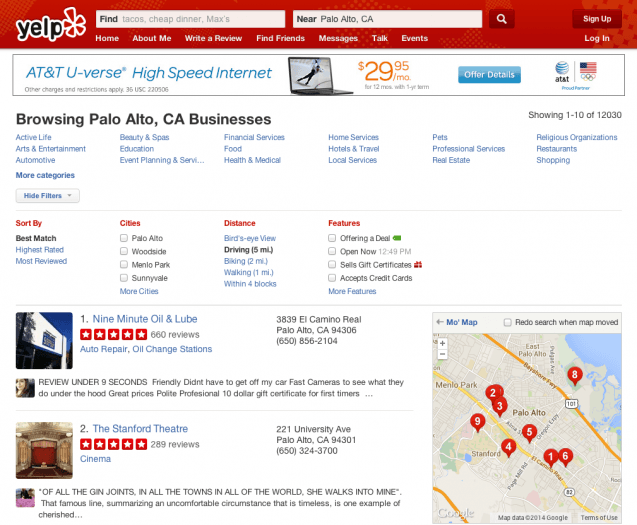A Virginia court has published a ruling that could change the landscape of online reviews forever. The ruling declares that Yelp, the popular online destination for business reviews, must divulge the real names behind seven reviewers who criticized a local business under anonymous monikers.

The case started in the court of Alexandria, where Virginia-based plaintiff—Joe Hadeed, owner of Hadeed Carpet Cleaning—contended that a group of negative reviews published to his page were not written by actual customers. When Mr. Hadeed was unable to match the customer experiences up to those in his database, he complained to Yelp. After all, Mr. Hadeed felt, Yelp’s terms of service explicitly denounces using falsified reviews to inflate or deflate reputation. Yelp refused to take action, and so Mr. Hadeed had his attorneys issue a subpoena to Yelp that demanded the disclosure of the anonymous customers. The ruling out of Alexandria came down in favor of Hadeed Carpet Cleaning, and Yelp was required to comply with Hadeed’s requests.
The original ruling relied on an interpretation of the First Amendment, which protects free speech. The court ruled that comments posted anonymously could not be verified, and therefore ineligible for protection under the First Amendment right. This decision was recently upheld by the Virginia Court of Appeals.
According to reputation attorney Aaron Minc, this ruling is a blessing for businesses: “If a business wants to challenge speech and can’t verify the source because the author is anonymous, that shouldn’t be the business’s problem, it’s the author’s because they refuse to publish something that’s verifiable.”
But Eric Goldman, Professor of Law at Santa Clara University, disagrees: “This is a terrible ruling. The court reduced its level of judicial scrutiny because the plaintiff alleged the reviews were fake, even though we don’t know if the reviews are actually fake or not.” That proof, says Goldman, should be a requirement. Because plaintiffs routinely claim any negative critiques are falsified, who is to stop a business from censoring reviews it finds unfavorable under this pretext?
Joe Hadeed is quoted in court documents as saying that he believed the negative criticism— which complained almost uniformly about unfair business practices and false advertising—originated from a small number of users who registered fake Yelp accounts with the purpose of slandering his business.
Yelp’s attorneys argued that each review came from a unique IP address. Attorney Raighne Delany, who represented Mr. Hadeed, contends that IP addresses are not adequate proof of unique identities: “how many IP addresses does one person have between all their devices? It would be easy to create a number of different fake accounts.”
Yelp’s attorneys further argued that the company actually conformed to well established rights laid out by its terms of service, and that its refusal to take action was within its powers.
The court ruling over rules those terms and sets a standard for the state to “unmask” a potentially libelous account if it is anonymous.
“We are disappointed that the Virginia Court of Appeals has issued a ruling that fails to adequately protect free speech rights on the internet, and which allows businesses to seek personal details about website users—without any evidence of wrongdoing—in efforts to silence online critics,” said Yelp spokesman Vince Sollitto in a statement. “Other states require that plaintiffs lay out actual facts before such information is allowed to be obtained, and have adopted strong protections in order to prevent online speech from being stifled by those upset with what has been said. We continue to urge Virginia to do the same.”
Judge William G. Petty penned in his 25-page opinion that Yelp reviews are generally protected by the First Amendment, and that anonymous speakers should not fear that the veil will be whisked away the moment a dissenting opinion comes to light. Judge Petty does not wish to give free rides to people who want to indiscriminately trash a business’s reputation, and added that if “the reviewer was never a customer of the business, then the review is not an opinion; instead, the review is based on a false statement.”
The ruling seems clear: if you can’t prove you were there, you can’t bad mouth the venue. What do you think of this practice? Can anyone feel safe posting negative reviews on Yelp (or anywhere else on the Web) again?
Image Credits – Screenshot Yelp.com site




